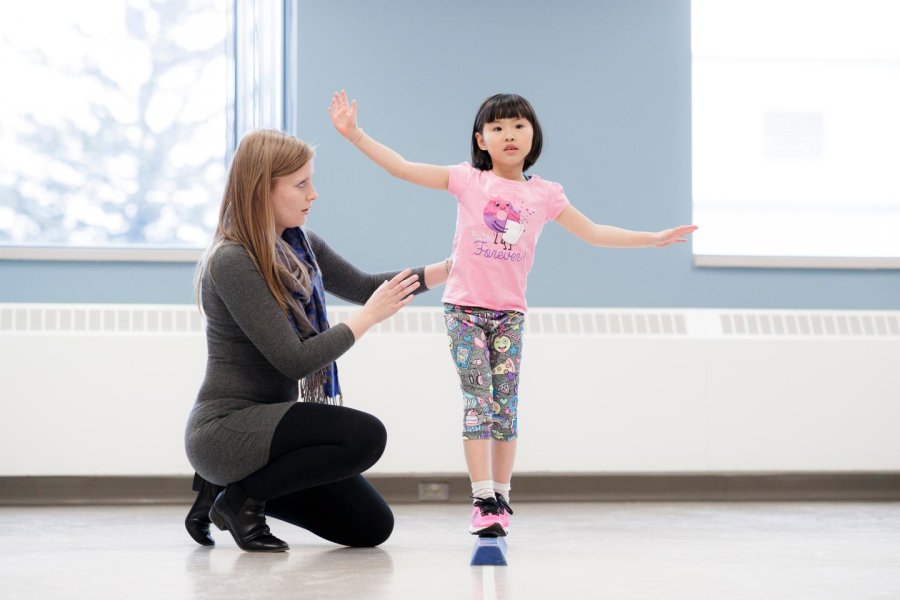News
Childhood concussion guidelines use “Snakes and Ladders” approach to recovery

Research coordinator Sarah Randall assesses a child after concussion.
Credit: McMaster University
The developers of new comprehensive guidelines for helping children recover from a concussion got inspiration from a surprising place – a famous childhood board game.
“For children, recovering from a concussion is like a snakes and ladders game, as there are times where they may have rapid improvement and climb through the steps more quickly, and other times where returning symptoms mean they have to take a slide back,” said author Carol DeMatteo, professor of rehabilitation science and a researcher at CanChild.
CanChild is a research institute which is part of McMaster University in Ontario, Canada and is where the new guidelines were developed.
“Our new research, along with our review of studies from all over the world, has led us to update the guidelines for recovery, and we have different but compatible guidelines for returning to school and for returning to activity including sport.
“Families have always felt the recovery instructions were too restrictive and difficult to follow. We now know that too much rest after concussion is not a good thing, and children can begin some activity sooner as long as they don’t overdo it and make their symptoms worse.”
According to these new guidelines, children are recommended to mainly rest during the first 24 hours after injury. However, some home and leisure activities can be enjoyed for up to five minutes at a time – so long as symptoms do not worsen.
From there, the guidelines lay out three distinct courses for concussions. One path is for those who are symptom-free within 48 hours of their injury, while the second is for those who are symptom-free or much decreased within one to four weeks. The last group is for those who continue to have symptoms for more than four weeks.
As DeMatteo explains, each path is broken into stages which clear goals and allowed activities for each stage. The guidelines also describe what changes to look for before moving onto the next stage.
For example, those who have reached stage two in the path to returning to school, children with concussions are allowed to walk, enjoy 15 minutes of screen time or school work twice a day, and can socialize with one or two friends for up to 30 minutes.
While the guidelines try to account for a wide range of symptoms and recovery speeds, DeMatteo urges health professionals and caretakers to remember that every child and every concussion is different. As such, each child has to go at their own pace on the road to recovery.



